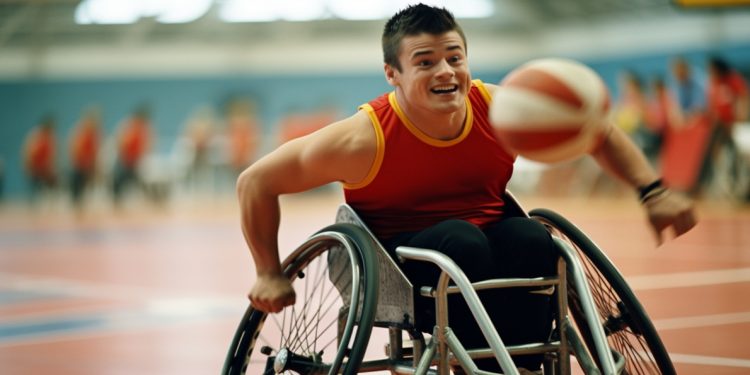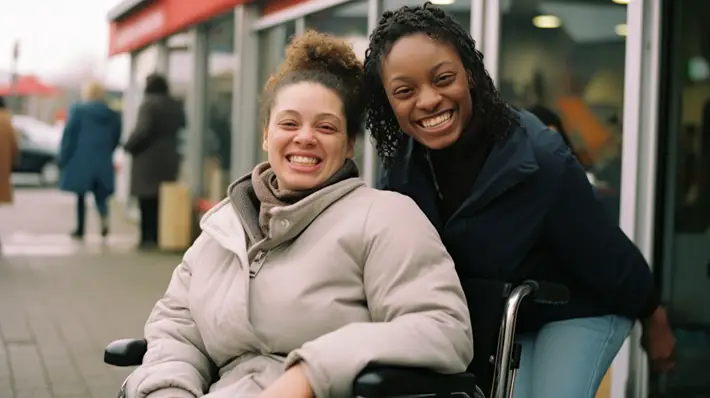Improving Wellbeing For Those With A Disability

For those that live with a disability, it can place limitations on their lifestyle, affecting their happiness and general well-being. If you or someone you know has a disability, there are ways in which you can help to make changes for the better. If you’re looking for tips and advice on how to improve well-being with a disability, then take a look at the following post.
Better Mobility
Implementing inclusive transportation systems and designing public spaces with clear pathways and tactile indicators also enhance mobility. Offering comprehensive rehabilitation programs, physical therapy, and mobility training can help individuals develop strength, coordination, and skills necessary for independent movement. It is essential to ensure that these measures are accompanied by public awareness campaigns to foster understanding, empathy, and acceptance of disabled individuals, creating a society that is truly inclusive and supportive of their mobility needs. Mobility aids such as electric-powered wheelchairs help improve the ability for those with a disability to get out and enjoy their day without being stuck inside. This contributes to the general well-being and happiness of those with a disability they feel restricts them.
Improve Accessibility
Improving accessibility for the disabled involves implementing various measures. Firstly, physical accessibility should be enhanced by providing ramps, elevators, wide doorways, accessible parking spaces, and designated seating areas in public buildings and transportation systems. Tactile indicators can assist individuals with visual impairments. Secondly, digital accessibility should be addressed by creating websites and digital content that are compatible with assistive technologies. Thirdly, communication accessibility can be improved by offering sign language interpretation services and captioning in public events and broadcasts.
Focus On Interests And Hobbies
Engaging in hobbies and pursuing interests can be incredibly empowering and fulfilling for disabled individuals. Artistic pursuits such as painting, drawing, sculpture, and crafts offer a creative outlet and a means of self-expression. Music can also be a wonderful avenue, whether it involves playing a musical instrument, singing, or simply listening and appreciating different genres. Writing is another enriching hobby, allowing individuals to express their thoughts, feelings, and experiences. For those who enjoy physical activities, adapted sports or activities like wheelchair basketball, swimming, or yoga can provide a sense of accomplishment and physical well-being. Additionally, exploring digital hobbies such as coding, graphic design, or online communities can open up a world of possibilities. Ultimately, the key is to find activities that bring joy, fulfilment, and a sense of purpose to one’s life, irrespective of their physical abilities.
Seeking Help And Support
If you or someone you know is disabled and in need of help and support, there are numerous resources available to assist you. Start by reaching out to local disability organisations, community centres, or government agencies that specialise in disability services. These organisations can provide guidance on accessing medical care, assistive devices, education and employment opportunities, and social support networks. Additionally, consider contacting disability advocacy groups for rights and legal protections information.
Self-Advocacy
Improving self-advocacy skills is crucial for empowering disabled individuals to assert their rights and needs. To enhance self-advocacy, it is important to provide knowledge and education. Disabled individuals should be encouraged to learn about their rights, available services, and support networks. This includes understanding relevant laws and policies that protect their rights. Developing effective communication skills is also essential. They should be supported in acquiring assertiveness and clear articulation of their needs and preferences. Practising self-expression in various settings can help build confidence. Empowering disabled individuals involves fostering a sense of self-worth, encouraging them to recognise their abilities, and providing opportunities to make decisions and take control of their lives. Additionally, connecting with disability advocacy groups and networks can provide resources and support for self-advocacy efforts. Ultimately, improving self-advocacy skills empowers disabled individuals to actively participate in decision-making processes and advocate for their rights and well-being.
Support With Activities And Entertainment
Supporting disabled individuals with activities is crucial for promoting their engagement, socialisation, and overall well-being. One way to provide support is by adapting activities to make them accessible and enjoyable. This can involve modifying equipment, rules, or techniques to accommodate different abilities. Additionally, offering inclusive activities that encourage interaction and participation can foster social connections and a sense of belonging. Creating spaces and events where disabled individuals can engage with their peers, whether through sports, arts, or recreational activities, promotes socialisation and mutual support. Providing appropriate accommodations, such as accessible venues or communication aids, ensures that disabled individuals can fully participate. It’s important to recognise and celebrate the unique abilities and interests of each individual, fostering a positive and inclusive environment where everyone can thrive and enjoy meaningful activities.
Disability-Based Sport
Disability-based sports provide opportunities for disabled individuals to engage in physical activity, compete, and experience the many benefits of sports participation. These sports are specifically designed to accommodate different abilities and cater to a wide range of disabilities. Examples of disability-based sports include wheelchair basketball, adaptive skiing, blind football, goalball, wheelchair rugby, para-swimming, and para-athletics. Participating in disability-based sports promotes physical fitness, improves motor skills, enhances self-esteem, and fosters social connections. It allows individuals with disabilities to showcase their abilities, challenge themselves, and experience the joy of teamwork and friendly competition. Disability-based sports also help raise awareness, challenge stereotypes, and promote inclusivity by demonstrating the strength and determination of disabled athletes.
Attending Disability Support Groups
Disability support groups offer numerous benefits to individuals with disabilities. They provide a valuable source of peer support, allowing members to connect with others who share similar experiences and challenges. This sense of belonging and understanding reduces feelings of isolation and promotes emotional well-being. Support groups also serve as a hub for sharing information and resources, offering practical advice, and learning from the experiences of others. Members gain empowerment and advocacy skills, enabling them to navigate systems and assert their rights. Support groups provide a safe space for emotional expression, helping individuals cope with stress, anxiety, and depression. Additionally, they foster social connections, expand networks, and offer opportunities for education, awareness, and skill-building. Overall, disability support groups play a pivotal role in enhancing the overall quality of life for individuals with disabilities.
Accessing Mental Health Support
Mental health support for the disabled is crucial for addressing the unique challenges they may face. Accessible and comprehensive mental health services are essential in promoting their well-being. This can include providing specialised counselling or therapy services tailored to the needs of disabled individuals. It’s important to create a safe and inclusive environment where they feel comfortable discussing their mental health concerns. Additionally, training mental health professionals to understand and address the specific challenges faced by disabled individuals is crucial. Peer support groups can also be valuable, as they offer a space for shared experiences, understanding, and mutual support. Overall, prioritising mental health support for the disabled is essential to ensure their holistic well-being and to empower them to lead fulfilling lives.
Enhancing the well-being of individuals with disabilities is an imperative task that demands our unwavering commitment and collective effort. Furthermore, comprehensive support systems must be put in place to cater to diverse needs. This includes accessible healthcare, educational opportunities, and employment accommodations. By championing inclusion in all facets of life, we can empower individuals with disabilities to thrive and realise their fullest potential.










